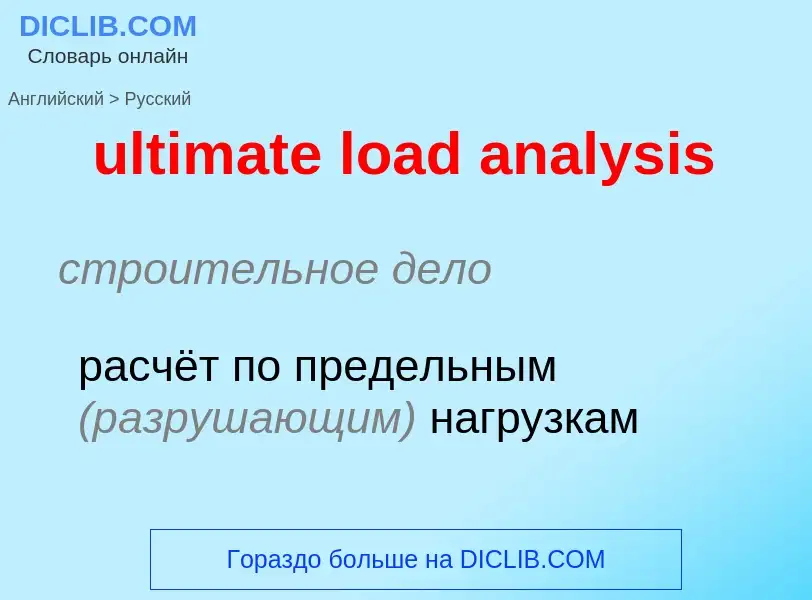Tradução e análise de palavras por inteligência artificial ChatGPT
Nesta página você pode obter uma análise detalhada de uma palavra ou frase, produzida usando a melhor tecnologia de inteligência artificial até o momento:
- como a palavra é usada
- frequência de uso
- é usado com mais frequência na fala oral ou escrita
- opções de tradução de palavras
- exemplos de uso (várias frases com tradução)
- etimologia
ultimate load analysis - tradução para russo
строительное дело
расчёт по предельным (разрушающим) нагрузкам
Definição
Wikipédia
In power engineering, the power-flow study, or load-flow study, is a numerical analysis of the flow of electric power in an interconnected system. A power-flow study usually uses simplified notations such as a one-line diagram and per-unit system, and focuses on various aspects of AC power parameters, such as voltages, voltage angles, real power and reactive power. It analyzes the power systems in normal steady-state operation.
Power-flow or load-flow studies are important for planning future expansion of power systems as well as in determining the best operation of existing systems. The principal information obtained from the power-flow study is the magnitude and phase angle of the voltage at each bus, and the real and reactive power flowing in each line.
Commercial power systems are usually too complex to allow for hand solution of the power flow. Special-purpose network analyzers were built between 1929 and the early 1960s to provide laboratory-scale physical models of power systems. Large-scale digital computers replaced the analog methods with numerical solutions.
In addition to a power-flow study, computer programs perform related calculations such as short-circuit fault analysis, stability studies (transient and steady-state), unit commitment and economic dispatch. In particular, some programs use linear programming to find the optimal power flow, the conditions which give the lowest cost per kilowatt hour delivered.
A load flow study is especially valuable for a system with multiple load centers, such as a refinery complex. The power-flow study is an analysis of the system’s capability to adequately supply the connected load. The total system losses, as well as individual line losses, also are tabulated. Transformer tap positions are selected to ensure the correct voltage at critical locations such as motor control centers. Performing a load-flow study on an existing system provides insight and recommendations as to the system operation and optimization of control settings to obtain maximum capacity while minimizing the operating costs. The results of such an analysis are in terms of active power, reactive power, voltage magnitude and phase angle. Furthermore, power-flow computations are crucial for optimal operations of groups of generating units.
In term of its approach to uncertainties, load-flow study can be divided to deterministic load flow and uncertainty-concerned load flow. Deterministic load-flow study does not take into account the uncertainties arising from both power generations and load behaviors. To take the uncertainties into consideration, there are several approaches that has been used such as probabilistic, possibilistic, information gap decision theory, robust optimization, and interval analysis.

